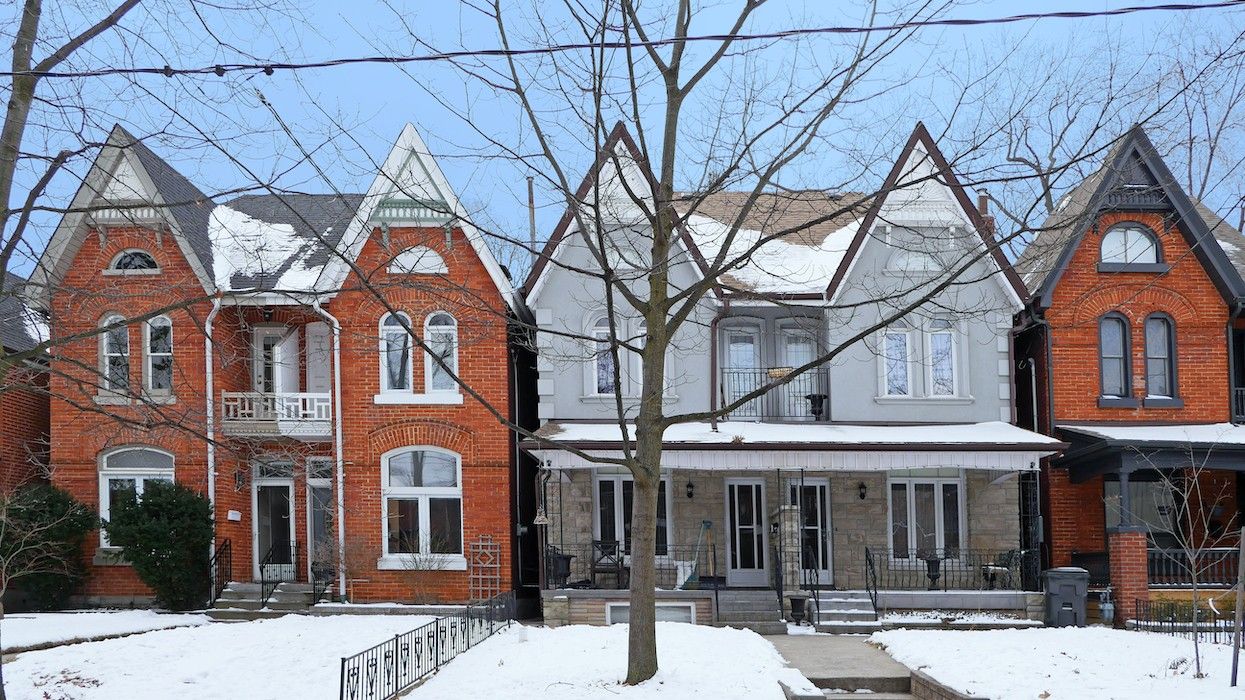As far as Novembers go, last month was a relatively quiet one for Toronto’s real estate market.
According to a new report from Chestnut Park Real Estate Ltd. Brokerage, just 4,236 home sales were recorded across the entire Toronto region in the month, and that figure is down 6% on a year-over-year basis.
More notable still is the fact that last month marked the “lowest number of sales reported for November since the economic downturn of 2008.” It was also the third consecutive month to see less than 5,000 home sales.
Chestnut Park President and CEO, Chris Kapches, writes that November’s sales numbers are particularly lacklustre considering that “the Toronto Region’s population has grown by more than 20% in the intervening 15 years.”
“As 2023 comes to an end, there is an uncanny similarity to the way the year 2022 ended after the Bank of Canada implemented its punishing benchmark hike rates,” Kapches adds.
Though sales have tumbled since the summer, home prices across the Toronto region have managed to hold firm, the report also notes. Average selling price came in at $1,082,179 in November, marking a slight 0.3% gain over November 2022.
The report also highlights that sales recorded between August and November were 6.7% higher in 2022, while average prices over those same months were 1.5% higher in 2023.
“Strong sale prices in the face of declining sales are a market anomaly. There is, however, an explanation for this development,” Kapches explains.
“Until recently, supply has remained low. Even in November, only 10,545 new listings came to market, 16.5% higher than the 9,053 that came to market last year. At month end, there were only 16,759 properties available to buyers. Although this is an increase from previous months, it is still relatively low by historic standards.”
While housing demand is alive and well across the Toronto region, the report underlines the fact that today’s buyers are “constrained by a lack of affordability.”
“Five-year fixed rates are over 6%, and to qualify, borrowers must pass the prevailing stress test requiring them to qualify at more than 8%,” Kapches writes.
“There are, however, buyers that do have money and they are the ones participating in the resale market, keeping prices from [falling] noticeably. Unfortunately, there simply are not enough of them to push sales numbers higher.”
Zeroing in on the City of Toronto’s resale market specifically, the average selling price for detached properties was $1,617,918 last month, and remains 3.5% higher than it was in November 2022. The story was similar for semi-detached properties, which sold, on average, for $1,217,811 last month, representing a year-over-year rise of 2.4%.
Where there was some deviation was in the city’s condominium apartment segment, where sales slipped 8.2% year over year in November, and prices dropped 1.7% year over year to $720,280.
“Although condominium apartments are the least expensive housing type in Toronto, condominium apartments are the housing form sought out primarily by first-time buyers who, regretfully, are financially the most vulnerable purchasing group,” Kapches explains.
Looking ahead, Kapches cautions that until the bank opts to lower rates, “sales were remain low, at their current levels.” If more inventory is added to the market, sales may rally, but further downward pressure on prices is to be expected. For the time being, months of inventory across the Toronto region edged up to 2.4 months last month, while the sales-to-list ratio came in at 46%, bringing the market closer to buyers’ market territory.
This month’s report also lays out the year-to-date stats, noting that 62,576 properties have been sold so far this year.
“It is unlikely that December sales will substantially exceed 3,000, which means that 2023 will end the year with approximately 65,000 to 66,000 reported sales — a number that we have no seen in more than two decades,” writes Kapches.
“To paraphrase Queen Elizabeth’s 1992 speech, ‘2023 is shaping up to be a real estate market annus horribilis.’”





















